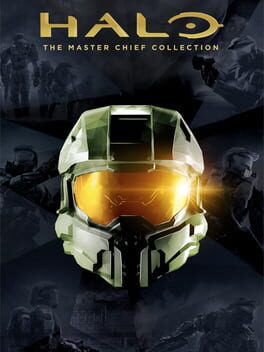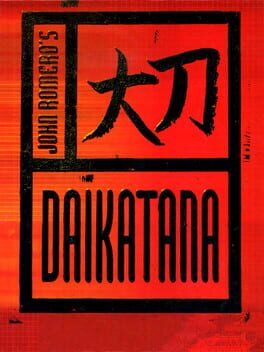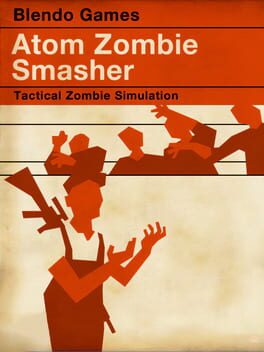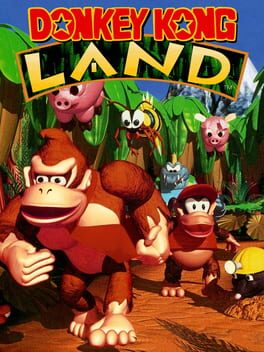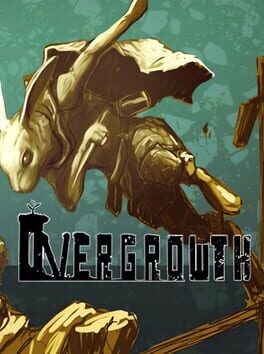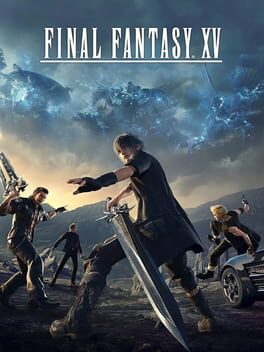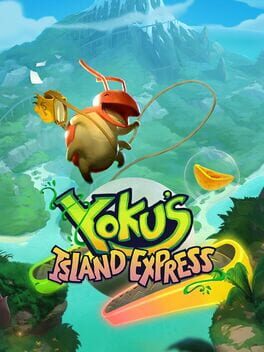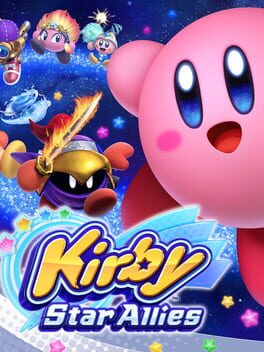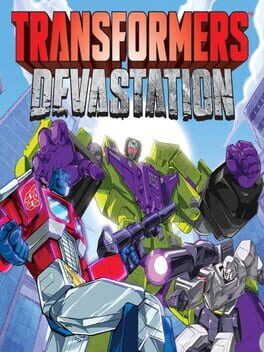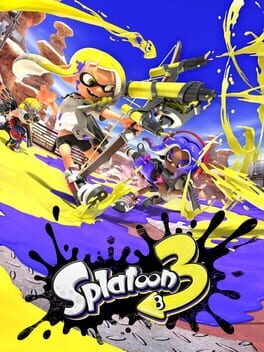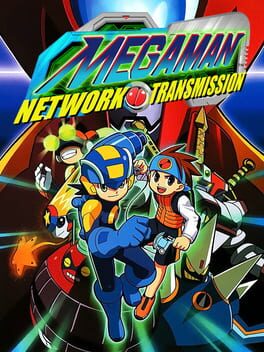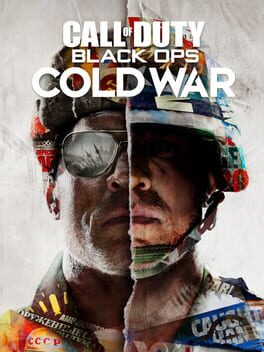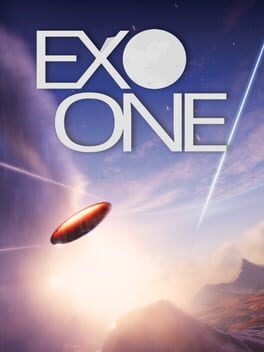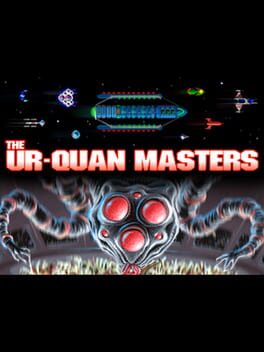ThruLidlessEye
Halo, as a whole, is mediocre, if inoffensively so.
I remember watching a friend of mine from down the street play the first two Halo games on PC, he preferred to drive the tank with a flightstick. I remember playing the Halo 3 coop with my neighbor when I was in middle school, playing the multiplayer on a tiny CRT at an acquaintance's house in high school. While I was in college my friends and I would regularly gather at someone's house to play the maps he had made in various Halo games' Forge mode; he would draw these maps out on graph paper while we ate together at restaurants and mall food courts. For a long time, I only ever played Halo as a social activity, in short bursts, and never really got a feel for what any particular game in the series was like.
In 2015, I bought an Xbox One for the sole purpose of playing games with my friends who also had an Xbox. It came with Halo: MCC, a digital copy. My parents' internet at the time was so slow that I had to bring my console and a small TV to my aforementioned Forge friend's house to use his internet to download the game.
Since then I've tried time and time again to play these games and I always bounce off of them, hard.
Levels feel like copy and pasted pre-fabs, their structure feels completely directionless. Despite the game being a fairly linear, narrative driven sequence that often consists of literal hallways, I find myself getting lost about as often as the first time I played Doom. The purpose of objects and settings is never clear, nothing is interesting, everything is just sleek metal walls and plain grassy hills. Everything about the story and setting feels like it should be minimal set dressing to focus on action, but the serious tone of dialogue and the epic score make it all seem pretentious. Halo takes the plodding narrative focus of a game like Half Life, but goes one step further to interject cutscenes between the action, but the story is just plain boring, and the action isn't even any good.
Every enemy takes a ludicrous amount of time and shots to kill. Simple things like moving and shooting never feel satisfying. Master Chief never feels unstoppable, he feels pathetically slow and weak compared to nearly every other recognizable FPS player character I can think of. The gameplay additions in the sequels and the further expanding story are, past a certain point, often just different enough to disappoint some fans, though it never goes far enough to interest me.
Halo is, in every way, more shallow than its predecessors in the FPS genre, yet instead of giving an appropriately snappy rhythm, it slows to a crawl, demanding more time for less action. It blares Skyrim-esque chants and orchestral arrangements in your ear to let you know its all actually very important.
It's not quite accurate to say that I don't understand Halo's appeal, it's just that to me the things that draw people in seem like little more than cheap tricks.
I don't think I will ever spend the time to review any of these games individually.
I remember watching a friend of mine from down the street play the first two Halo games on PC, he preferred to drive the tank with a flightstick. I remember playing the Halo 3 coop with my neighbor when I was in middle school, playing the multiplayer on a tiny CRT at an acquaintance's house in high school. While I was in college my friends and I would regularly gather at someone's house to play the maps he had made in various Halo games' Forge mode; he would draw these maps out on graph paper while we ate together at restaurants and mall food courts. For a long time, I only ever played Halo as a social activity, in short bursts, and never really got a feel for what any particular game in the series was like.
In 2015, I bought an Xbox One for the sole purpose of playing games with my friends who also had an Xbox. It came with Halo: MCC, a digital copy. My parents' internet at the time was so slow that I had to bring my console and a small TV to my aforementioned Forge friend's house to use his internet to download the game.
Since then I've tried time and time again to play these games and I always bounce off of them, hard.
Levels feel like copy and pasted pre-fabs, their structure feels completely directionless. Despite the game being a fairly linear, narrative driven sequence that often consists of literal hallways, I find myself getting lost about as often as the first time I played Doom. The purpose of objects and settings is never clear, nothing is interesting, everything is just sleek metal walls and plain grassy hills. Everything about the story and setting feels like it should be minimal set dressing to focus on action, but the serious tone of dialogue and the epic score make it all seem pretentious. Halo takes the plodding narrative focus of a game like Half Life, but goes one step further to interject cutscenes between the action, but the story is just plain boring, and the action isn't even any good.
Every enemy takes a ludicrous amount of time and shots to kill. Simple things like moving and shooting never feel satisfying. Master Chief never feels unstoppable, he feels pathetically slow and weak compared to nearly every other recognizable FPS player character I can think of. The gameplay additions in the sequels and the further expanding story are, past a certain point, often just different enough to disappoint some fans, though it never goes far enough to interest me.
Halo is, in every way, more shallow than its predecessors in the FPS genre, yet instead of giving an appropriately snappy rhythm, it slows to a crawl, demanding more time for less action. It blares Skyrim-esque chants and orchestral arrangements in your ear to let you know its all actually very important.
It's not quite accurate to say that I don't understand Halo's appeal, it's just that to me the things that draw people in seem like little more than cheap tricks.
I don't think I will ever spend the time to review any of these games individually.
2016
Legitimately the most fun I've ever had with a social game. Generated a veritable bevy of meme content among my friends at the time. Understandably, it didn't have the longest shelf life, and I'm not surprised that it has been long survived by each of Nintendo's other forays into mobile gaming. Don't cry because it's over, smile because it happened, I suppose.
2000
2011
1995
This is probably the first 2D platformer I ever played. I don't remember anything about it other than the yellow cartridge. At that point I had only ever seen 3D games like Mario 64 and Ocarina of Time and simple, abstract arcade games like Pac Man and Galaga. I probably just straight up couldn't tell what I was looking at. I love it. This and Pokemon Red were the first games to challenge me not on a mechanical level, but an artistic one.
2017
2016
4 annoying boys who don't even kiss each other go on a road trip peppered with sidequests meticulously placed to lead you to dungeons containing cool macguffins that ultimately don't matter. The combat plays itself, the story has no good sense of pace, the world is mostly empty, the load times are abysmal even on PC with the game installed on an SSD. There's been a lot of content added to the game after launch but everything falls into one of two categories: stuff I don't know how to access, and stuff I don't know when I should do it or how it fits into the rest of the game. I beat it once one PS4 in 2017, and I've tried to get back into it now that we know there isn't going to be any more story DLC, but I just don't think I have the patience for it. There are things to like about it, but they are all bogged down by a complete lack of a good structure to hold it together.
2018
This is, more or less, a full-featured reimagining of Kirby Super Star for more a more modern console. It is visually stunning, musically enchanting, and manages to sneak in some interesting character moments. It has an overreliance on its cooperative elements that makes it less engaging than the Wii and 3DS entries in the series; trying to play the game without throwing friend hearts at everything you see is like playing an old-school arcade game with infinite quarters.
This game spent hardly a couple years on shelves before getting pulled due to a publisher deal expiring, and it's a shame. This isn't Platinum's best, but it's probably the most no-frills version of their typical style of game, the most accessible "real" Platinum action game for someone not already familiar with the genre. It would be an instant recommendation for anyone looking to try this sort of thing for the first time, but sadly, it no longer "really" exists. It feels great to play, it isn't the prettiest game in the world but it's usually moving fast enough for that to matter very little. The PC version could have used more settings: it tops out at 1080p and seems to only support barely half a dozen different resolutions.
2022
Splatoon is really strange because, in a vacuum, these three games make up what is probably Nintendo's most flatly iterative series. The aesthetic, the design sensibilities, the story, the structure, from top to bottom it's the same; you get some new single-player levels, some new multi-player maps, some new weapons, maybe a new game mode if you're lucky (it's a card game in this one). It makes sense why someone might be disappointed by this, especially considering how novel the first game seemed on release. It may be more of the same, but I think it's a winning formula. 7 years later I still find this both visually and mechanically more interesting than a lot of other big shooters on the market.
This is probably the best 2.5D Mega Man game, definitely the most interesting.
Ever since the first game put the magnet beam in Elec Man's stage, behind an obstacle only Guts Man's weapon could move, Mega Man has been trying to balance catering to two completely different kinds of player. On one hand, they wanted a skilled player to be able to beat the original game in under an hour; on the other hand, they wanted casuals and newcomers to be able to experiment and take their time.
Kyle Bosman put out a whole video on the idea that a game being released with a rewind feature is functionally dead, not really viable as a product anymore, only kept around as a curiosity or for its important place in the history of either its franchise or games as a whole. I don't really agree with this, but I will admit that in the specific case of Mega Man, playing the "classic" games "as intended" is something bordering on unbearable, and nobody has actually done it in decades.
Every re-release of every classic 8-bit Mega Man game has added quality of life features, cheats, accessibility options, whatever you want to call them. Rapid fire, saved games to circumvent the password system, save states via both emulation and the "restore points" offered by the Virtual Console, and rewind. From Mega Man 3 onward there was almost no logic behind what bosses were weak to which weapons, or at the very least it was no longer something the player would be able to easily infer as in the earlier games. It has pretty much been expected for the past 20+ years that if you're playing a Mega Man game at all, you're going to be using a guide, and you're going to be superseding the base mechanics.
Keeping this in mind, Mega Man: Network Transmission is one of the more digestible games in the series. The RPG elements both give the player more room to grow, and provide a more clear "rock-paper-scissors" structure for boss weaknesses. Ever since Mega Man 2 let you kill some bosses in 3 hits or less, some players have complained that this "trivializes" the bosses; Network Transmission wants you to find ways to trivialize its bosses, even expecting you to rematch previously defeated foes until you can kill them efficiently enough. The game's levels inherit the meandering, exploratory nature of the handheld RPG's, with a more clear expectation of revisiting these levels than pretty much any of the mainline Mega Man platformers.
The way that they've adapted the card-based combat system of the Battle Network games to a 2D action game is interesting both because of what they changed, and what they didn't. Battle Network's engagements happen in a separate screen from navigation, usually with three enemies or fewer per encounter, so it only gives you a handful of attack options and refills the customization gauge after only a few seconds. Network Transmission's fights and traversal happen continuously and simultaneously, so the meter fills slow, and each chip has a certain amount of times it can be reused (based on how many you've picked up).
The first oddity of this system is that chip usage is also arbitrarily limited by a meter (a la spells requiring magic points); I genuinely cannot think of a single good reason for this. It just results in the player waiting, which they'll also be doing if they run out of chips and need to wait for the cust. gauge to fill. It's just more unneeded complexity. The second, probably the most unfortunate holdover from the handheld RPG's, is that the mega buster is basically completely useless until you're halfway through the game and collect enough upgrades. At this point, the buster is so strong that basically the only reason to use chips at all is that they don't need to charge, they fire immediately. All of your strong chips just become boss-killers, and all of your weaker chips become emergency tools for when you poorly anticipate a regular enemy and get stun-locked.
The soundtrack is great, the graphics and level themes are cute. I kind of like how you pick levels from a map, not just because it's how a lot of other Mega Man games handle level selection, but because it's kind of like how the Pokemon games on GameCube translated that handheld series to the big screen. The back of the box features the bold lie that the game has an "intricate story-line that ties in to the whole Mega Man Battle Network series"; not only is the story shallow, not only does it have virtually no bearing on the other games, the "whole Battle Network series" at the time of this game's release in North America was... two games.
Also the story contains this passage, which is hilarious now:
"Lan: Isn't a vaccine something like a medicine?
Dad: Yeah... I don't know if you're ready to learn about this yet, but... Vaccines, viruses, Navis, and chip data are all programs. So they can all be used for both good and bad things...
Lan: So there are good viruses too?
Dad: Hehe, well, I don't know about that... But a bad vaccine is conceivable."
Ever since the first game put the magnet beam in Elec Man's stage, behind an obstacle only Guts Man's weapon could move, Mega Man has been trying to balance catering to two completely different kinds of player. On one hand, they wanted a skilled player to be able to beat the original game in under an hour; on the other hand, they wanted casuals and newcomers to be able to experiment and take their time.
Kyle Bosman put out a whole video on the idea that a game being released with a rewind feature is functionally dead, not really viable as a product anymore, only kept around as a curiosity or for its important place in the history of either its franchise or games as a whole. I don't really agree with this, but I will admit that in the specific case of Mega Man, playing the "classic" games "as intended" is something bordering on unbearable, and nobody has actually done it in decades.
Every re-release of every classic 8-bit Mega Man game has added quality of life features, cheats, accessibility options, whatever you want to call them. Rapid fire, saved games to circumvent the password system, save states via both emulation and the "restore points" offered by the Virtual Console, and rewind. From Mega Man 3 onward there was almost no logic behind what bosses were weak to which weapons, or at the very least it was no longer something the player would be able to easily infer as in the earlier games. It has pretty much been expected for the past 20+ years that if you're playing a Mega Man game at all, you're going to be using a guide, and you're going to be superseding the base mechanics.
Keeping this in mind, Mega Man: Network Transmission is one of the more digestible games in the series. The RPG elements both give the player more room to grow, and provide a more clear "rock-paper-scissors" structure for boss weaknesses. Ever since Mega Man 2 let you kill some bosses in 3 hits or less, some players have complained that this "trivializes" the bosses; Network Transmission wants you to find ways to trivialize its bosses, even expecting you to rematch previously defeated foes until you can kill them efficiently enough. The game's levels inherit the meandering, exploratory nature of the handheld RPG's, with a more clear expectation of revisiting these levels than pretty much any of the mainline Mega Man platformers.
The way that they've adapted the card-based combat system of the Battle Network games to a 2D action game is interesting both because of what they changed, and what they didn't. Battle Network's engagements happen in a separate screen from navigation, usually with three enemies or fewer per encounter, so it only gives you a handful of attack options and refills the customization gauge after only a few seconds. Network Transmission's fights and traversal happen continuously and simultaneously, so the meter fills slow, and each chip has a certain amount of times it can be reused (based on how many you've picked up).
The first oddity of this system is that chip usage is also arbitrarily limited by a meter (a la spells requiring magic points); I genuinely cannot think of a single good reason for this. It just results in the player waiting, which they'll also be doing if they run out of chips and need to wait for the cust. gauge to fill. It's just more unneeded complexity. The second, probably the most unfortunate holdover from the handheld RPG's, is that the mega buster is basically completely useless until you're halfway through the game and collect enough upgrades. At this point, the buster is so strong that basically the only reason to use chips at all is that they don't need to charge, they fire immediately. All of your strong chips just become boss-killers, and all of your weaker chips become emergency tools for when you poorly anticipate a regular enemy and get stun-locked.
The soundtrack is great, the graphics and level themes are cute. I kind of like how you pick levels from a map, not just because it's how a lot of other Mega Man games handle level selection, but because it's kind of like how the Pokemon games on GameCube translated that handheld series to the big screen. The back of the box features the bold lie that the game has an "intricate story-line that ties in to the whole Mega Man Battle Network series"; not only is the story shallow, not only does it have virtually no bearing on the other games, the "whole Battle Network series" at the time of this game's release in North America was... two games.
Also the story contains this passage, which is hilarious now:
"Lan: Isn't a vaccine something like a medicine?
Dad: Yeah... I don't know if you're ready to learn about this yet, but... Vaccines, viruses, Navis, and chip data are all programs. So they can all be used for both good and bad things...
Lan: So there are good viruses too?
Dad: Hehe, well, I don't know about that... But a bad vaccine is conceivable."
Call of Duty: Black Ops: Cold War is the first Call of Duty game I have bought and played in 5 years, so, what's new?
Noah Caldwell Gervais' videos on the Call of Duty series focus mostly (almost exclusively) on the single player modes, but those videos are probably the most comprehensive and clear look at the progression of the franchise. World War II first person shooting games started with the tonally bombastic, if mechanically thin, power fantasy of Wolfenstein 3D. Games like Medal of Honor subdued the power fantasy into something a bit more Hollywood, but it was still in the forefront. Call of Duty initially set itself apart from other shooters, and earned itself a place in the market, by being tonally distinct. When it had explored this, it then separated itself by being distinct in its setting with the original Modern Warfare.
Around the time that the Treyarch games began to develop a continuing narrative and Modern Warfare turned into a trilogy, Call of Duty began to set itself apart from the rest of the market by dominating it with advertising campaigns of unbelievable budget, and by fine tuning the games' sound design and reward structure. Plant the seed of potential transaction into as many people as possible, and deliver to those buyers the most viscerally satisfying first person skinner box that you possibly could.
The main complaint that I saw people have about Call of Duty around this time was that while the screeching guitar riffs that played during weapon unlocks were somewhat exciting, the game beneath the reward structure was neither tactically deep nor tactilely engaging. In the years that followed, making more interesting additions to player movement became the priority: sliding, double jumping, wall-running, grappling. I don't really know if I would say a ton has been done to improve tactics, but I suppose there are definitely maps with clear MOBA-esque lane layouts, so that's something.
To justify the more exaggerated movements of wall-running and double jumping, the series drifted into a more near-future science fiction setting, which recent entries like WWII and the Modern Warfare reboot seem to be distancing themselves from. Cold War continues this trend. While some fans of the series didn't particularly care for the sci-fi setting, and while remnants of the more tactile style of play still exist (crouch sliding is alive and well), I would guess that Activision had no problem backpedaling over the years from their decision to make the games' character controls more immediately engaging.
Playing Cold Wars multiplayer for the first time, I was shocked by how many of the maps I recognized from older Call of Duty games despite having not played in half a decade. Most of the gameplay changes are rather minor, Call of Duty is still more or less the same game that it has been for over a decade now.
The biggest change is obvious before the player even enters their first match. The UI of Call of Duty games from a decade ago was surprisingly minimal given the game's tone. Picking modes and customizing loadouts in the Modern Warfare trilogy in particular were done through menus that only rarely took up more than half of the screen, with most space dedicating to a simple smoke effect over a flat background. The main reason for this probably had less to do with artistic intent, and more to do with keeping the menus snappy to let PS3 and Xbox 360 players into matches as quickly as possible. Things are different now, one might say war has changed (I'm so freaking lord-darned funny for saying this).
Cold War's menu is overwhelmingly cumbersome and bloated. Most of the screenspace is initially dedicated to showing a 3D render of the player's avatar walking through a warzone. Older Call of Duty games didn't even really offer player customization aside from gun camouflage, but with the addition of paid cosmetic DLC, showing off the player's appearance has become a priority. The menu is split up into several horizontally oriented tabs, about half of which are mostly related to in-game purchases. I haven't really played an online shooter since I was in college, when I was really into CS:GO. I still didn't really know what a "battle pass" was until I played this game. The game never really explains enough about its menu design or jargon for me to feel like I truly grasp it. Initially its pretty unclear what costs real money and what doesn't, and I'm not convinced that this is anything other than intentional obfuscation.
The main way in which Call of Duty has changed in the past decade is that now that Call of Duty is a satisfying enough game to play, in terms of its base gameplay, reward structure, and cultural domination, each new game selling record numbers is basically a guarantee. How do you make more money than that? Part of the strategy is to offer a free option to the handful of people who were probably not buying in anyway in the form of Warzone. The other part is the paid microtransactions in the retail game, the battle pass possibly being the most interesting one.
The reward structure in older Call of Duty games had a clear limitation: eventually the player would run out of things to unlock. Players could "prestige" in order to reset their unlocks, but this was mostly just allowing them to superficially retrace their steps in order to hear the sound effects more often again. The battle pass and seasonal additions to new Call of Duty games do add new content, for a price.
In summary, Call of Duty now allows players to periodically reengage with the reward structure, for a fee. That's what's new.
Noah Caldwell Gervais' videos on the Call of Duty series focus mostly (almost exclusively) on the single player modes, but those videos are probably the most comprehensive and clear look at the progression of the franchise. World War II first person shooting games started with the tonally bombastic, if mechanically thin, power fantasy of Wolfenstein 3D. Games like Medal of Honor subdued the power fantasy into something a bit more Hollywood, but it was still in the forefront. Call of Duty initially set itself apart from other shooters, and earned itself a place in the market, by being tonally distinct. When it had explored this, it then separated itself by being distinct in its setting with the original Modern Warfare.
Around the time that the Treyarch games began to develop a continuing narrative and Modern Warfare turned into a trilogy, Call of Duty began to set itself apart from the rest of the market by dominating it with advertising campaigns of unbelievable budget, and by fine tuning the games' sound design and reward structure. Plant the seed of potential transaction into as many people as possible, and deliver to those buyers the most viscerally satisfying first person skinner box that you possibly could.
The main complaint that I saw people have about Call of Duty around this time was that while the screeching guitar riffs that played during weapon unlocks were somewhat exciting, the game beneath the reward structure was neither tactically deep nor tactilely engaging. In the years that followed, making more interesting additions to player movement became the priority: sliding, double jumping, wall-running, grappling. I don't really know if I would say a ton has been done to improve tactics, but I suppose there are definitely maps with clear MOBA-esque lane layouts, so that's something.
To justify the more exaggerated movements of wall-running and double jumping, the series drifted into a more near-future science fiction setting, which recent entries like WWII and the Modern Warfare reboot seem to be distancing themselves from. Cold War continues this trend. While some fans of the series didn't particularly care for the sci-fi setting, and while remnants of the more tactile style of play still exist (crouch sliding is alive and well), I would guess that Activision had no problem backpedaling over the years from their decision to make the games' character controls more immediately engaging.
Playing Cold Wars multiplayer for the first time, I was shocked by how many of the maps I recognized from older Call of Duty games despite having not played in half a decade. Most of the gameplay changes are rather minor, Call of Duty is still more or less the same game that it has been for over a decade now.
The biggest change is obvious before the player even enters their first match. The UI of Call of Duty games from a decade ago was surprisingly minimal given the game's tone. Picking modes and customizing loadouts in the Modern Warfare trilogy in particular were done through menus that only rarely took up more than half of the screen, with most space dedicating to a simple smoke effect over a flat background. The main reason for this probably had less to do with artistic intent, and more to do with keeping the menus snappy to let PS3 and Xbox 360 players into matches as quickly as possible. Things are different now, one might say war has changed (I'm so freaking lord-darned funny for saying this).
Cold War's menu is overwhelmingly cumbersome and bloated. Most of the screenspace is initially dedicated to showing a 3D render of the player's avatar walking through a warzone. Older Call of Duty games didn't even really offer player customization aside from gun camouflage, but with the addition of paid cosmetic DLC, showing off the player's appearance has become a priority. The menu is split up into several horizontally oriented tabs, about half of which are mostly related to in-game purchases. I haven't really played an online shooter since I was in college, when I was really into CS:GO. I still didn't really know what a "battle pass" was until I played this game. The game never really explains enough about its menu design or jargon for me to feel like I truly grasp it. Initially its pretty unclear what costs real money and what doesn't, and I'm not convinced that this is anything other than intentional obfuscation.
The main way in which Call of Duty has changed in the past decade is that now that Call of Duty is a satisfying enough game to play, in terms of its base gameplay, reward structure, and cultural domination, each new game selling record numbers is basically a guarantee. How do you make more money than that? Part of the strategy is to offer a free option to the handful of people who were probably not buying in anyway in the form of Warzone. The other part is the paid microtransactions in the retail game, the battle pass possibly being the most interesting one.
The reward structure in older Call of Duty games had a clear limitation: eventually the player would run out of things to unlock. Players could "prestige" in order to reset their unlocks, but this was mostly just allowing them to superficially retrace their steps in order to hear the sound effects more often again. The battle pass and seasonal additions to new Call of Duty games do add new content, for a price.
In summary, Call of Duty now allows players to periodically reengage with the reward structure, for a fee. That's what's new.
2021
2002
You leave the solar system and, before you even regain control of your vessel, the song explodes.
Intense breakbeats and ethereal synthesizers soon accompanied by acid bass, synthetic pizzicato strings and twinkling digital chimes. The entire screen is filled with a deep, blood red; the same red that envelops the Earth, the force field which serves as a prison here serves to protect your ship. The space around your craft is filled with bursts and streaks of light, what are they? Are they stars whizzing past as you speed by? Are they other ships coming in and out of warp? Are they projectiles volleyed back and forth between the combatants in the war against the Ur-Quan? It stimulates the imagination in a way that more literal or realistic representations couldn't.
Nearly a minute in, after a brief lull, the main theme is re-introduced, the lead instrument slightly detuned, the rest of the instruments now accompanying it; it still signifies danger, but with newfound confidence, adventure. The drums leave the mix completely, bells come in, their sustained reverb buried deep in phaser or chorus. The song has taken on a more meditative quality. The sounds beneath the music have transformed from high pitched whirling wisps to deep growls. Nearly two and half minutes into the song the main theme once again repeats, but now transposed (I don't have a good enough ear to tell if its a key change or different mode or what), it now takes on a sense of pure heroism.
But you won't hear that the first time you hear this song. If you attempt to leave the Sol system before completing the introductory quest, you'll find yourself with insufficient fuel to get anywhere, and nowhere near enough firepower or maneuverability to survive a fight; additionally it seems like at this point in the game the encounter rate is cranked up specifically to discourage you from skipping the opening missions. Even once you can fabricate parts and train crew for your ship, you'll inevitably be making short enough trips at first that you'll only hear the more "dangerous" parts of the song. Even once you upgrade your fuel tanks and start making longer voyages, encounters with enemies will interrupt the music and make the song play from the beginning before you have time to hear the later segments. The player's relationship with the song develops as they progress through the game in what I think is genuinely one of the most magical fusions of gameplay, narrative, and audiovisual artwork in any video game, ever.
I'm utterly shocked that this game isn't more widely known. I myself only found it by chance: a podcast I listen to recommended Ars Technica's "War Stories" interview with one of the developers of Crash Bandicoot, and I decided to watch all of the interviews in the series. Most of these interviews are about technical aspects of the game, challenges faced during development, personal histories of the developers, or behind-the-scenes of the business end of game production. The interview with Paul Reiche and Fred Ford, founders of Toys For Bob, is just them gushing for two hours about a game I had never once heard of beforehand. I look the game up to find that despite its seeming obscurity, it was once often considered in "best game of all time" lists, is widely praised by high profile games industry personnel, and has been free and open source for over twenty years.
This game has the sprawling map and incredible dialogue of a game like Fallout, but is so much more intuitive that it could be played with an NES controller without issue. It has some of the best writing, most memorable characters, and most entertaining voice acting I've ever seen in games; I genuinely cannot even imagine how mind blowing this game must have been in 1994 when this version was released on 3DO. It has one of the best intro sequences of any game from this era, I was instantly hooked. I feel like I've barely dipped my toes into it, its scope is so ridiculous; knowing what happens as time passes in the game I'm genuinely not sure if I could ever beat it without following a walkthrough, but even so I'd say it's worth starting out by exploring blindly and learning about the world. Some day I'm going to actually hunker down and try and squeeze this gem for all it's worth, and it's going to absolutely own my life. Even now, with what relatively few hours I've spent with it, Star Control 2: The Ur-Quan Masters has already had an immense impact on how I view games.
Intense breakbeats and ethereal synthesizers soon accompanied by acid bass, synthetic pizzicato strings and twinkling digital chimes. The entire screen is filled with a deep, blood red; the same red that envelops the Earth, the force field which serves as a prison here serves to protect your ship. The space around your craft is filled with bursts and streaks of light, what are they? Are they stars whizzing past as you speed by? Are they other ships coming in and out of warp? Are they projectiles volleyed back and forth between the combatants in the war against the Ur-Quan? It stimulates the imagination in a way that more literal or realistic representations couldn't.
Nearly a minute in, after a brief lull, the main theme is re-introduced, the lead instrument slightly detuned, the rest of the instruments now accompanying it; it still signifies danger, but with newfound confidence, adventure. The drums leave the mix completely, bells come in, their sustained reverb buried deep in phaser or chorus. The song has taken on a more meditative quality. The sounds beneath the music have transformed from high pitched whirling wisps to deep growls. Nearly two and half minutes into the song the main theme once again repeats, but now transposed (I don't have a good enough ear to tell if its a key change or different mode or what), it now takes on a sense of pure heroism.
But you won't hear that the first time you hear this song. If you attempt to leave the Sol system before completing the introductory quest, you'll find yourself with insufficient fuel to get anywhere, and nowhere near enough firepower or maneuverability to survive a fight; additionally it seems like at this point in the game the encounter rate is cranked up specifically to discourage you from skipping the opening missions. Even once you can fabricate parts and train crew for your ship, you'll inevitably be making short enough trips at first that you'll only hear the more "dangerous" parts of the song. Even once you upgrade your fuel tanks and start making longer voyages, encounters with enemies will interrupt the music and make the song play from the beginning before you have time to hear the later segments. The player's relationship with the song develops as they progress through the game in what I think is genuinely one of the most magical fusions of gameplay, narrative, and audiovisual artwork in any video game, ever.
I'm utterly shocked that this game isn't more widely known. I myself only found it by chance: a podcast I listen to recommended Ars Technica's "War Stories" interview with one of the developers of Crash Bandicoot, and I decided to watch all of the interviews in the series. Most of these interviews are about technical aspects of the game, challenges faced during development, personal histories of the developers, or behind-the-scenes of the business end of game production. The interview with Paul Reiche and Fred Ford, founders of Toys For Bob, is just them gushing for two hours about a game I had never once heard of beforehand. I look the game up to find that despite its seeming obscurity, it was once often considered in "best game of all time" lists, is widely praised by high profile games industry personnel, and has been free and open source for over twenty years.
This game has the sprawling map and incredible dialogue of a game like Fallout, but is so much more intuitive that it could be played with an NES controller without issue. It has some of the best writing, most memorable characters, and most entertaining voice acting I've ever seen in games; I genuinely cannot even imagine how mind blowing this game must have been in 1994 when this version was released on 3DO. It has one of the best intro sequences of any game from this era, I was instantly hooked. I feel like I've barely dipped my toes into it, its scope is so ridiculous; knowing what happens as time passes in the game I'm genuinely not sure if I could ever beat it without following a walkthrough, but even so I'd say it's worth starting out by exploring blindly and learning about the world. Some day I'm going to actually hunker down and try and squeeze this gem for all it's worth, and it's going to absolutely own my life. Even now, with what relatively few hours I've spent with it, Star Control 2: The Ur-Quan Masters has already had an immense impact on how I view games.
